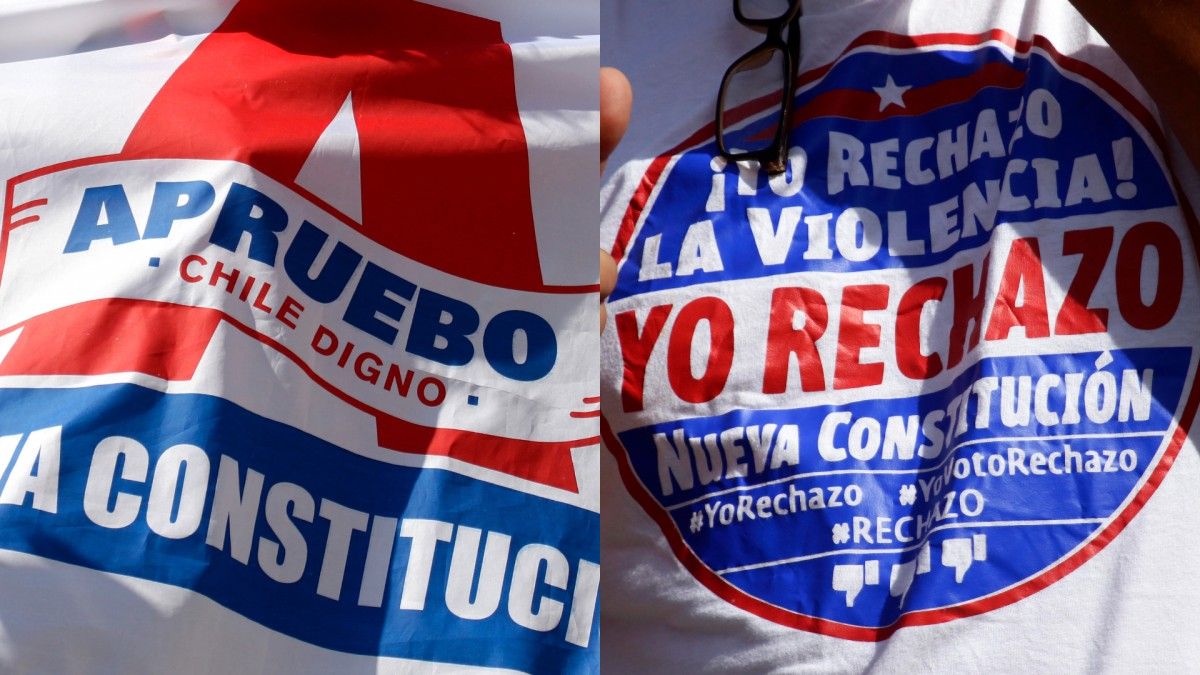But now, after controversial disputes within the drafting assembly and a series of controversial proposals that change the shape of the statethey introduce the multinationality or change the political and judicial system, all the surveys have indicated for months that the text will be failed.
“This is not a second round where millions of people who lose have to look for a candidate, but it is a choice that has been slowly cooked and it has different components that have generated this trend,” electoral analyst Axel Callís, from the Tú Influyes pollster, told Reuters.
The vote will impact the perception of the progressive government Gabriel Boric– promoter of the political agreement that opened the process and that supports the constitutional change – whose popularity has fallen sharply in recent months amid uncertainty and political polarization.
Factors like economic slowdown and the rising inflationthe growing unsafetythe crisis unleashed by the illegal immigration and a sharp mapuche conflict they are key to voters, who will also vote with the government’s position in mind, analyst Kenneth Bunker said.
“It is a complex election in that sense because one would think that it is only the constitutional election, whether they like the text or not, but it is also a critical moment in the history of Chileby Covid-19, by the social outbreak, by the Boric government,” he said.
And one of the biggest sources of uncertainty is how many people will vote in an election in which two factors will be combined for the first time: the vote will be mandatory and all persons over the age of 18 are automatically eligible to do so.
In Chile, where just over 15 million people are called to vote on Sunday, voting is voluntary, but the rules for this plebiscite are different.
The process of change will not stop
The latest surveys published up to 15 days before the election -as established by law- gave an advantage of about 10 points to the ‘Rejection’a trend maintained with more or less variations since March when it took the lead in the polls.
Along the way, the board also shook as various figures of center lefta bloc that governed 30 years after the fall of the dictatorship, began to question the text for the new Constitution and join the voices to reject it and present another.
The more radical left criticizes that both the right and the center-left stopped social advances and that all this exploded in the 2019 protests, so now there is no reason to trust their will for change.
Gabriel Boric himself said that it would be necessary to start another process with a new assembly instead of changing the current charter, which dates from 1980 although it has undergone successive reforms over the years, the largest of them in 2005 under the government of the socialist Ricardo Lagos.
The only current consensus is that Sunday’s election will not be an end point, but a gateway to a new stage of constitutional change in Chile.
“Our will is that once approved, Congress can improve what needs to be improved. We do not believe that this text is untouchable, but we do say that it is a significant advance over the current one, a better starting point,” he told Reuters. deputy Vlado Mirosevićcoordinator of the campaign for “Approval”.
Christian Democrat Senator Ximena Rinconwho rejects the proposal presented, said that a “great agreement” should be convened on Monday for a more limited process where, based on consensus -declaring a social and democratic state of law or caring for the environment- the political regime or the security, issues where there are profound differences.
For this reason, Axel Callís proposes, the most optimal result next Sunday is that the difference be narrow so that the negotiations and what comes out of it satisfies both sides.
“The social agenda, the one that was outlined after the outbreak, the agenda that led Gabriel Boric to be president, is waiting. If all this does not lead to profound changes in issues of social rights, dignity in health, pensions, the smelly climate gunpowder is going to continue there,” he said.
Source: Ambito
David William is a talented author who has made a name for himself in the world of writing. He is a professional author who writes on a wide range of topics, from general interest to opinion news. David is currently working as a writer at 24 hours worlds where he brings his unique perspective and in-depth research to his articles, making them both informative and engaging.




